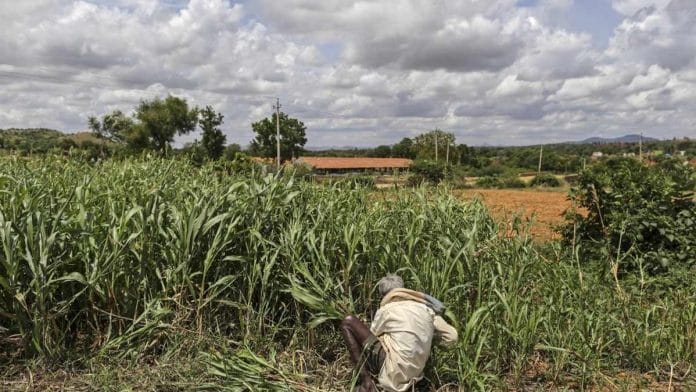New Delhi: The partial resumption of economic activities allowed by the Narendra Modi government will provide respite to manufacturing, construction and agricultural sectors, according to industry bodies and analysts. But they also want gradual opening up of more economic activities in the coming weeks.
The Modi government announced a complete lockdown for three weeks on 25 March and extended it by another 19 days until 3 May to contain the spread of the highly infectious novel coronavirus that has claimed 392 lives as of Wednesday evening.
With the initial three-week lockdown bringing economic activity to a near halt, the government has now announced relief for sectors like construction, manufacturing and agriculture in the second phase of the lockdown.
It allowed tea, rubber and coffee plantations, fisheries and fertiliser-manufacturing units to operate.
It also allowed manufacturing, wholesale and retail sale of essential items without any time restrictions. The government has also allowed industries operating in rural areas to resume production.
Additionally, those units that are part of the special economic zones and industrial towns have also been allowed to function, but with sufficient safeguards.
IT hardware production, jute industries, oil and gas exploration, coal mining and food processing were some of the other activities permitted.
The government also permitted construction of roads, irrigation projects and buildings in rural areas. Further, construction activity was also permitted within city limits using the existing pool of workers.
“Agriculture services and manufacturing of essential goods would continue to drive GDP growth amidst the lockdown while absence of key service sectors could have a bearing on GDP growth,” said CARE’s Ratings, a rating agency, in a note Wednesday.
Also read: How India can buck the trend of global recession caused by coronavirus
CII proposes further relaxations
The Confederation of Indian Industry (CII), an industry lobby group, welcomed the relaxations.
“The phased manner of the exit from lockdown is welcome and provides a roadmap for economic restart after 3rd May,” said Chandrajit Banerjee, Director-General, CII.
It, however, proposed some further relaxations.
The industry body hoped that in the next phase, some of the important labour-intensive sectors would be permitted to operate. It also proposed home delivery of retail products, including electronics and other household items, in addition to essentials to clear existing stocks.
It pointed out that existing export orders and opportunities should be met to retain India’s export market in the post-coronavirus period.
“Hence, textiles and garments and automobiles ecosystem, including components and maintenance services, should be allowed to operate after 20 April to meet their export obligations and well as to ensure free movement of goods,” the CII added.
‘Need to protect industries not allowed to open’
Secretary General of the Federation of Indian Chambers of Commerce and Industry (FICCI) Dilip Chenoy also welcomed the guidelines, saying the government has announced them at the right time, giving the industry sufficient time to formulate the standard operating procedures.
He added it addresses concerns of the people at the bottom of the pyramid.
Chenoy, however, said there is a need to protect those industries that have not been allowed to reopen.
Also read: Indian economy faces bigger risk from coronavirus because it is informal






